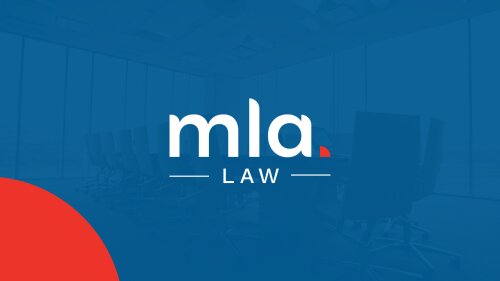Best Debt Capital Markets Lawyers in Greater Sudbury
Share your needs with us, get contacted by law firms.
Free. Takes 2 min.
List of the best lawyers in Greater Sudbury, Canada
About Debt Capital Markets Law in Greater Sudbury, Canada
Debt Capital Markets (DCM) refer to the financial environment in which entities raise funds by issuing debt instruments, such as bonds or debentures. In Greater Sudbury, as in the rest of Canada, the DCM landscape serves as a vital resource for municipalities, corporations, and institutions seeking long-term capital beyond traditional bank financing. Legal frameworks govern how these instruments are created, regulated, offered to investors, and serviced over their lifetimes. Local dynamics in Sudbury, such as economic conditions and the presence of key industries like mining, can influence how debt capital is raised and managed. Lawyers specializing in this field help ensure compliance and guide issuers and investors through the complex regulatory environment.
Why You May Need a Lawyer
The debt capital markets are highly regulated and involve significant legal complexities. Common situations where individuals and organizations may need legal help in Greater Sudbury include:
- Structuring and issuing corporate bonds or municipal debt
- Complying with disclosure requirements and securities regulations
- Advising on cross provincial or international offerings
- Negotiating terms with institutional investors or lenders
- Assisting with default, restructuring, or refinancing of existing debt
- Reviewing the terms and conditions in debt documentation
- Completing due diligence for mergers, acquisitions, or asset sales financed through debt
- Advising on tax implications and reporting obligations
- Responding to regulatory investigations or enforcement actions
- Helping investors understand their rights and protect their investments
A qualified lawyer can help you navigate these processes, mitigate risks, and ensure all legal requirements are fulfilled when accessing or investing in debt capital markets.
Local Laws Overview
Debt Capital Markets in Greater Sudbury are primarily governed by Canadian federal law, Ontario provincial regulations, as well as local municipal by-laws for certain public offerings. The most relevant frameworks include:
- Securities Act (Ontario) regulates how debt securities are offered and sold in Ontario, including disclosure obligations and registration requirements.
- Ontario Securities Commission (OSC) oversees regulatory compliance, licensing, enforcement, and investor protection in the province.
- Bank Act and Trust and Loan Companies Act set parameters for financial institutions involved in issuing or underwriting debt.
- Municipal Act governs the issuance of debt by municipalities in Greater Sudbury, including required approvals and limitations.
- Toronto Stock Exchange and other market rules if debt instruments are publicly listed or traded.
- Federal and provincial tax legislation affecting interest income, capital gains, and deductions.
Special attention should be paid to new regulations, investor protection measures, and specific disclosure obligations that may apply to your type of transaction or investment. Non-compliance can result in penalties or legal challenges.
Frequently Asked Questions
What is a debt capital market?
A debt capital market is a financial market where participants issue or trade debt securities, such as bonds, notes, and debentures, to raise funds for various projects or operational needs.
Who issues debts in Greater Sudbury?
Corporations, financial institutions, and local government bodies such as the City of Greater Sudbury may issue debt to fund infrastructure, operations, or expansion projects.
Are there special rules for issuing municipal debt in Sudbury?
Yes, the Municipal Act and local by-laws set out procedures, restrictions, and approval processes specific to municipal debt issuance.
Can individuals invest in debt instruments locally?
Yes, though access may be through brokers, banks, or registered investment accounts. Some offerings are only available to accredited or institutional investors.
Do I need to register with securities regulators to issue debt?
Generally, yes. Issuers must comply with Ontario Securities Commission rules, unless an exemption applies, such as private placements to sophisticated investors.
What are common legal risks in DCM transactions?
Key risks include non-compliance with disclosure laws, default by borrowers, disputes about terms, and potential enforcement by regulators.
What is the role of due diligence in debt issuances?
Due diligence ensures all material facts about the issuer and the securities are disclosed to investors, reducing legal risk and fostering trust in the transaction.
How does refinancing differ from restructuring?
Refinancing replaces existing debt with new debt, often at better rates or terms, while restructuring involves renegotiating terms with creditors, often when the issuer faces financial challenges.
What happens if a borrower defaults on their debt?
Legal remedies may include enforcement of security, court action, or restructuring negotiations. The specifics depend on the terms of the debt agreement and applicable law.
How can a lawyer help protect my interests as an investor?
A lawyer can review agreements, ensure compliance, clarify your rights, and assist if disputes or regulatory issues arise.
Additional Resources
If you need further assistance or information, the following resources are useful for those seeking legal advice in Debt Capital Markets:
- Ontario Securities Commission (OSC) - oversight, compliance advisories, and investor education for Ontario market participants
- Canadian Securities Administrators (CSA) - umbrella organization for Canadian securities regulators
- City of Greater Sudbury Finance Department - information on municipal debt issuances and financial statements
- Investment Industry Regulatory Organization of Canada (IIROC) - regulation and discipline of investment dealers and trading activity
- Financial Consumer Agency of Canada (FCAC) - consumer protection and education resources
- Law Society of Ontario - lawyer directory and guidelines for hiring legal professionals specializing in capital markets
Next Steps
If you believe you require legal advice or representation regarding Debt Capital Markets in Greater Sudbury, consider these steps:
- Define the nature of your issue or transaction as specifically as possible
- Gather all relevant documents, such as contracts, term sheets, or correspondence
- Consult a qualified lawyer with expertise in debt capital markets and experience with Ontario and local Sudbury regulations
- Ask about the lawyer’s DCM experience, relevant cases, and approach to compliance and risk management
- Set clear expectations for timelines, costs, and communication during your legal process
- Stay informed by reviewing guidance from regulatory bodies and asking your lawyer about regulatory updates affecting your situation
Getting timely legal advice can ensure you understand your rights and obligations, protect your investments, and prevent costly mistakes in the rapidly changing debt capital markets landscape of Greater Sudbury, Canada.
Lawzana helps you find the best lawyers and law firms in Greater Sudbury through a curated and pre-screened list of qualified legal professionals. Our platform offers rankings and detailed profiles of attorneys and law firms, allowing you to compare based on practice areas, including Debt Capital Markets, experience, and client feedback.
Each profile includes a description of the firm's areas of practice, client reviews, team members and partners, year of establishment, spoken languages, office locations, contact information, social media presence, and any published articles or resources. Most firms on our platform speak English and are experienced in both local and international legal matters.
Get a quote from top-rated law firms in Greater Sudbury, Canada — quickly, securely, and without unnecessary hassle.
Disclaimer:
The information provided on this page is for general informational purposes only and does not constitute legal advice. While we strive to ensure the accuracy and relevance of the content, legal information may change over time, and interpretations of the law can vary. You should always consult with a qualified legal professional for advice specific to your situation.
We disclaim all liability for actions taken or not taken based on the content of this page. If you believe any information is incorrect or outdated, please contact us, and we will review and update it where appropriate.










